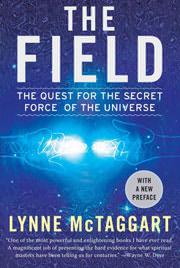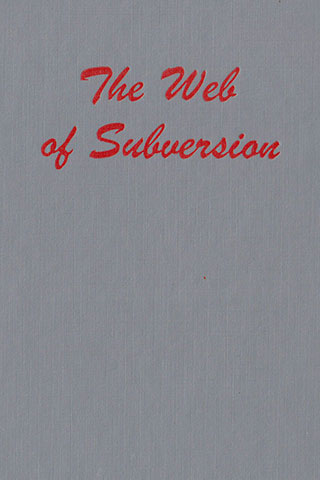Where Virtual Reality is Going
“In the early 1960s, I was sitting in a crowded New York theater watching one of the first dubbed Japanese monster imports. I was hoping the police would stop the huge lizard, who was clomping around, wrecking the city, toppling buildings, squashing humans I gradually became aware that the audience was cheering for the monster. A cultural shift had happened. I hadn’t known about it until then.” (Jon Rappoport, The Underground.)
I want to sketch the path along which virtual reality is going.
Right now, companies are selling improved tech that allows a helmet-wearer to see landscape and people in a wider perspective, and hear layers of sounds to the left and right, and above and below him. He can also walk inside the virtual set up.
He can’t touch everything he sees yet, but that’s coming. And perhaps one day, he’ll be able to sit down at a lavish meal and smell and taste the food.
Sight, sound, touch, smell, taste. A five-sense envelope.
He’ll leap off a cliff, fly through the clouds, and attack a monster coming his way, and he’ll win. He’ll do this over and over, and begin to control his own attendant fear. (You can see the obvious military use.)
But … the money men behind virtual reality will want more. They’ll want to program the user’s reactions AHEAD OF TIME; his feelings, sensations, nervous-system responses, endocrine outputs, brain signals.
The full package.
“Press Button A on your remote and receive the complete experience as we give it to you.”
Eventually, there won’t be a button A. Buyers will want what they’re given.
That’s the threshold, the crossover:
Why try to imagine and create your own reactions? Why try to minimize your Pavlovian responses? The VR techs already have the answers for you.
And their answers are very much like a medical protocol.
Entrainment on multiple levels. This is where virtual reality is heading.
In the process, the basic principle of elite reality-building will be expanded: cut off the individual’s imagination; bury it; exclude it; make it unnecessary.
Why?
Because that imagination, and its ability to invent new unpredictable realities, is ultimately what stands between a locked-down planet and a planet that has a chance of freedom.
No matter what happens to this society, civilization, and culture, imagination has to stay alive.
There is, at any given moment, a whole level of solution and innovation that is in a state of hidden potential, that is uncreated and unknown … no one knows what these solutions are, because individuals haven’t invented them yet, haven’t dreamed them up, haven’t acted on them.
If, by burying imagination, you eliminate this level, what’s left is total control over the population.
I’ll take this a step further. Humans are ALREADY operating with a package of pre-programmed brain signals, endocrine outputs, nervous-system reactions, emotional responses, and sensations. But …
The package isn’t sealed, it isn’t complete, it isn’t final, it isn’t unalterable. There are escape hatches. The primary path of escape is, in fact, imagination.
It’s the ability to demote things-as-they-are, in favor of what might be, what could be, what is invented — and living through and by imagination radically changes neurological and emotional and hormonal responses.
What constituted one’s old life becomes fuel for the fire of a new created life.
If you look at the technocratic field of brain-computer interface, and the so-called Singularity, in which the human brain plus the master-computer equal some mystical fulfillment, you’re really looking at a very old notion:
The accumulation of all knowledge brings illumination.
This is a nonsensical premise.
The “total of accumulated knowledge” is an infinitesimal fraction of what hasn’t yet been created. Whether we appreciate it or not, we swim in a vast sea of that uncreated potential; and hooking up to a computer via the brain does nothing to intensify the desire to deploy imagination and turn the potential into new reality.
You could spend the next million years cataloging data, information, knowledge, indexing it, comparing it, cross-referencing it, accumulating it; and you wouldn’t begin to approach or touch what imagination can do.
In this sense, the internal systems of a human being are temporary baseline protocols waiting for imagination to revolutionize them down to their core.
The overall effect of all forms of mind control is: inducing an acceptance that the temporary and the provisional are permanent.
That acceptance gives you a passive human being.
The author of three explosive collections, THE MATRIX REVEALED, EXIT FROM THE MATRIX, and POWER OUTSIDE THE MATRIX, Jon Rappoport was a candidate for a US Congressional seat in the 29th District of California. He maintains a consulting practice for private clients, the purpose of which is the expansion of personal creative power. Nominated for a Pulitzer Prize, he has worked as an investigative reporter for 30 years, writing articles on politics, medicine, and health for CBS Healthwatch, LA Weekly, Spin Magazine, Stern, and other newspapers and magazines in the US and Europe. Jon has delivered lectures and seminars on global politics, health, logic, and creative power to audiences around the world. You can sign up for his free emails at NoMoreFakeNews.com or OutsideTheRealityMachine.
Digital discoveries
- Migliori Casino Online
- Casino Non AAMS
- Siti Casino
- Sites De Paris Sportifs Belgique
- Tous Les Sites De Paris Sportifs Belgique
- Meilleur Casino En Ligne Belgique
- Casino En Ligne Belgique Bonus
- I Migliori Casino Online
- Non Aams Casino
- Scommesse Italia App
- Migliori Casino Online Esteri
- Paris Sportif Crypto Sans Kyc
- Site De Paris Sportif
- Sweet Bonanza Avis
- Paris Sportif Ufc
- オンラインカジノ 出金早い
- Casino Live En Ligne Français
- Site De Paris Sportifs
- Meilleurs Nouveaux Casinos En Ligne
- Casino En Ligne Français
- Casino En Ligne
- Casino Retrait Instantané
- Casino En Ligne Fiable
- Meilleur Casino En Ligne 2026
- Casino En Ligne Retrait Immédiat
- Casino Français En Ligne
- Casino Italia Non Aams
- Casino Con Free Spin Senza Deposito
- Siti Di Scommesse Non Aams
- Migliore Casino Non Aams
- Casino Online Non Aams 2026
- 토토사이트 모음
- Top 10 Trang Cá độ Bóng đá
- Casino En Ligne
- Casino En Ligne France
- Casino En Ligne Argent Réel
- Casino En Ligne Retrait Immédiat 2026
- Nouveau Casino En Ligne 2026
- Casino Online Stranieri








